5 expert tips on how to decorate with dark colors without making your rooms feel dull
With these simple tips, you can ensure your dark rooms don't end up looking drab
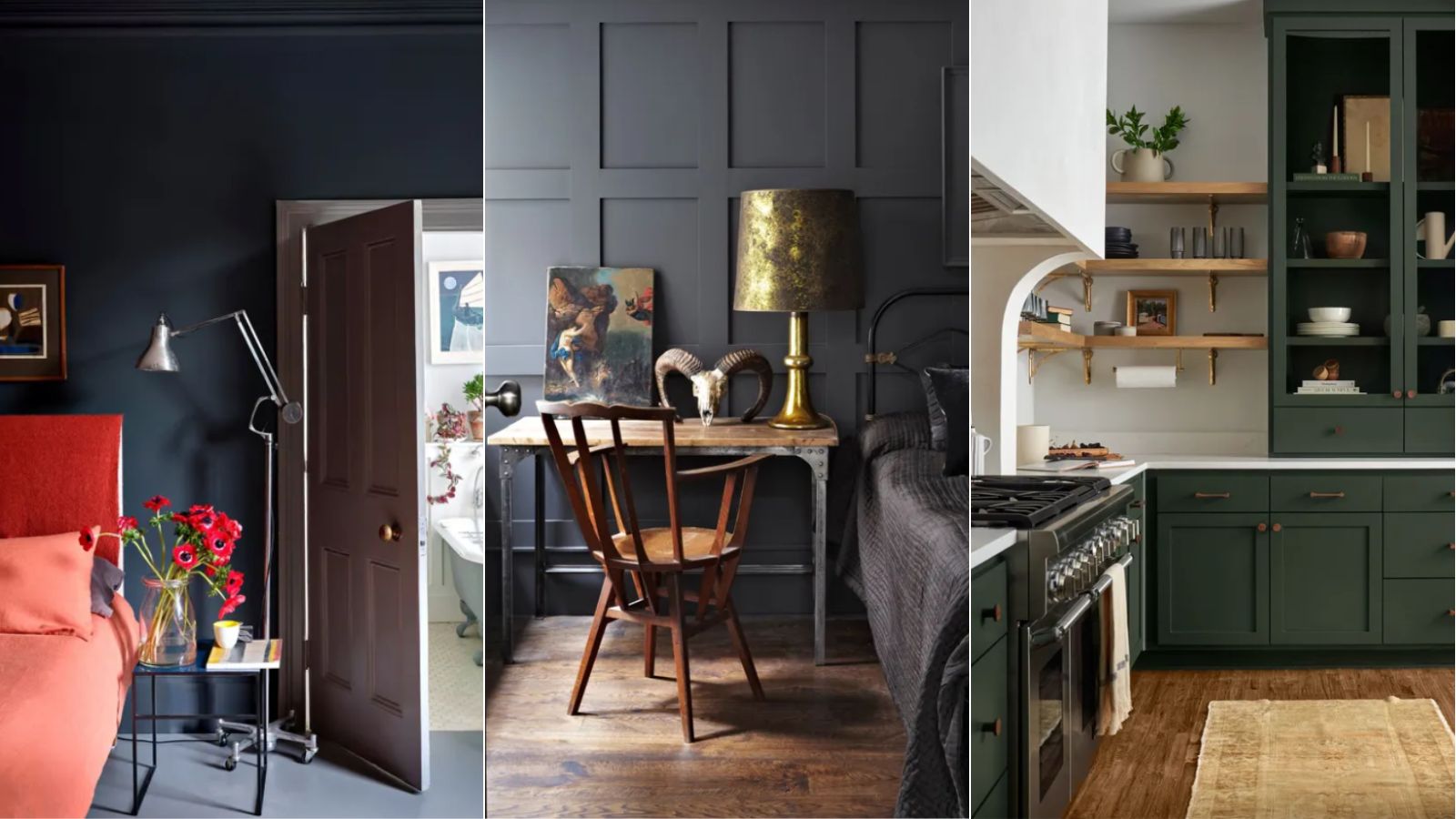

Decorating with dark colors in your home decor can be a great way to create a sophisticated and timeless look. It can also, however, end up feeling dull if certain dark colors end up overpowering a space.
While dark color trends can be incredibly effective, it's always key to maintain balance to ensure a cohesive look that doesn't feel drab. By considering a few design elements, interior designers say you can successfully embrace these statement colors into your home decor ideas.
'Decorating with dark colors doesn't have to result in a dull atmosphere, in fact, it can create an incredibly sophisticated and inviting space if done thoughtfully,' says interior designer Jennifer Davis.
How to decorate with dark colors without making rooms feel dull
'Decorating with dark colors without making the room feel dull is completely doable, but balance is key,' says interior designer Luis Carmona, founder of VERDE Interior Design. 'When you decorate a room with a neutral palette, there is enough light bouncing around the room to help you differentiate between the different textures, shapes, and shades of neutral in the room. This is made possible because lighter colors reflect more light.'
'On the contrary, when decorating a room with dark colors, more light gets absorbed by the darker objects and paint which will make it difficult for your eyes to differentiate between the different objects and darker shades of color. This is what causes the room to simply look dull and flat.'

Luis Carmona is the owner and lead designer at VERDE Interior Design. With almost two decades of experience in the creative space (interior design, advertising, and marketing), Carmona gets to blend his many passions into one design studio, offering services to commercial and residential clients in both Houston and Dallas.
Below, we've explored five different design and decor ideas that interior designers often use to ensure balance with dark rooms, ensuring a timeless look that avoids interior design mistakes.
1. Color drench your room
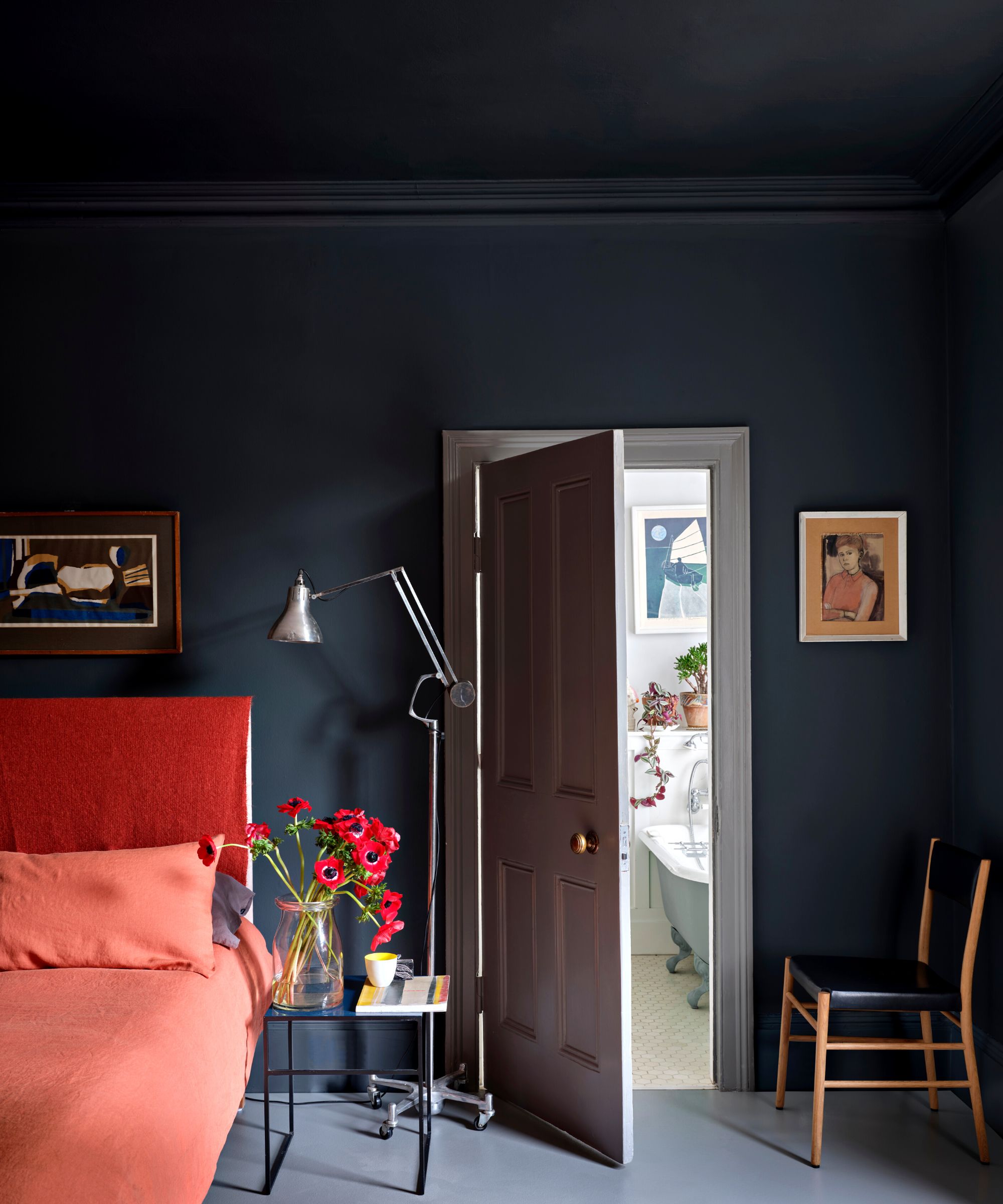
If you're in the planning stage of designing a room with dark colors, opt to go all about with paint ideas and embrace a color-drenched approach. This will add drama and create a cozy feel, leaning into the rich nature of these hues rather than minimizing them.
'Embrace the darkness and create a dramatic and intimate interior, with a color-drenching approach,' advises Ruth Mottershead, Creative Director at Little Greene. 'Colour drenching is simply taking a single color, or closely related colors from skirting to ceiling and everything in between, including walls, window frames, doors, and radiators – drenching your interior in color. Whilst color drenching can’t make a small room larger, it can embrace the size of the space and create something that lifts the mood and feels engaging, inviting, and contemporary.’

Ruth Mottershead is a color and interior design expert who works as Creative Director at Little Greene, a brand renowned for its beautiful paint and wallpaper collections, many of which are inspired by nature.
Patrick O'Donnell, color expert at Farrow & Ball also recommends using dark hues to create a cozy feel, adding that this approach works particularly well in small and low-light rooms:
'Using a darker color, particularly in a small or dim space, can feel brave. But introducing a dark color can work wonders and create a really cozy feeling. While lighter colors "recede", darker colors "advance", and a small room painted in a deep inky blue such as Hague Blue or Railings will always feel more inviting than a small room painted in white.'

Patrick O’Donnell is Farrow & Ball's color consultant & brand ambassador and has been with the brand since 2012. Patrick works with designers in the UK and North America, helping to bring their projects alive with the iconic, F&B color palette.
2. Choose warm dark colors
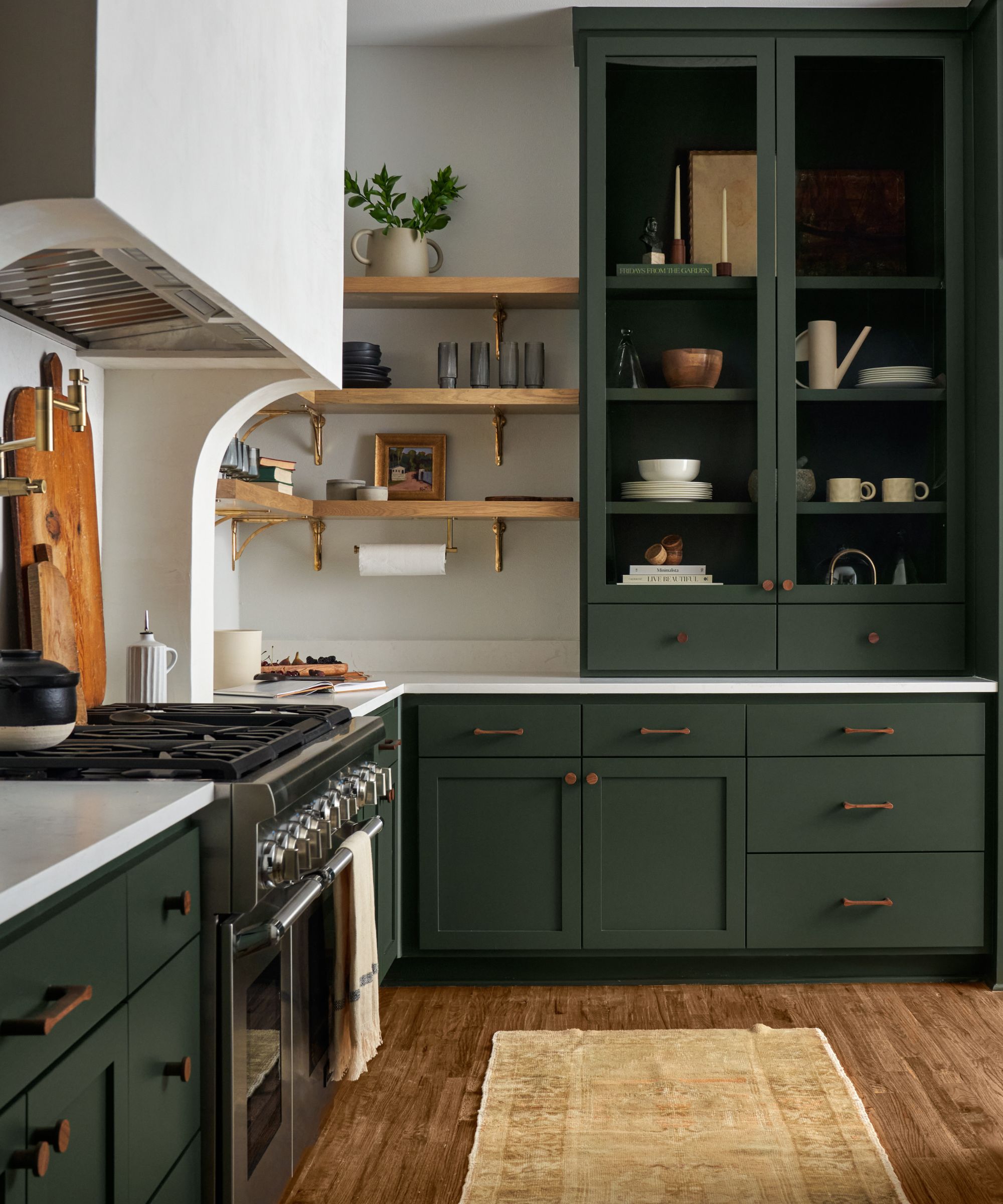
When choosing dark paints for any room, experts say that opting for those with warm tones can help to ensure your room doesn't feel dull, instead of anything much cooler such as decorating with gray.
'Using very dark colors can create a sense of intimacy and an encompassing feel, however, this approach can feel austere,' says Ruth. 'Choose warm darks with either red, brown, or yellow as a component of the color. Warmer alternatives to black such as Chocolate Colour or Purple Brown will be seen as black but will reflect warmth and offer a softness not exhibited by the cooler black tones.'
'Playing with light values within the dark color scheme is crucial,' agrees Jennifer. 'Opt for shades that have depth and richness but aren't overly heavy. Deep charcoal, navy, or jewel tones like emerald or sapphire possess an elegant allure without feeling oppressive.'
3. Add opulent accessories
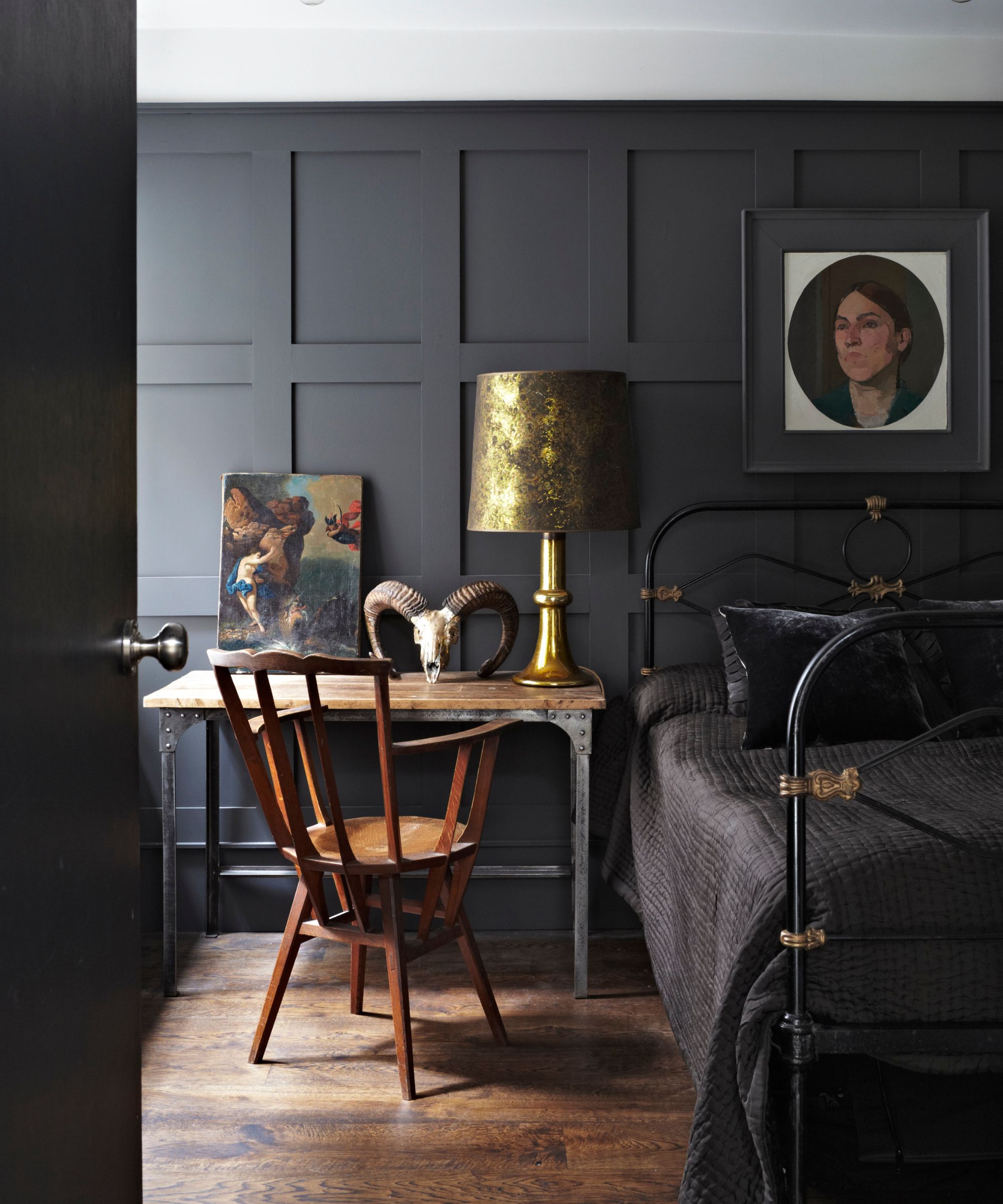
Decorating with accessories can also work well to prevent dark colors from appearing dull, working to uplift the room with interesting textures and finishes. 'Consider using plush rugs, velvet upholstery, or tactile elements like faux fur or woven textiles to introduce contrast and visual interest against the darker hues,' advises Jennifer.
Many different materials will add balance to a dark colored room but focus on those that reflect light, such as brass lamps to add warmth and create balance. 'Satin, silk, or metallic finishes on cushions, curtains, or furniture can reflect light, adding a luminous quality amidst the darker tones, preventing the room from feeling flat or gloomy,' she adds.

Jennifer fell in love with design at a young age and has been working in the industry for over 25 years. She has developed an eye for detail and a talent for creating timeless designs. Jennifer offers a balance of creativity and forward-thinking with a structured, organized, and detailed mentality. Jennifer is driven by her deep passion for design while curating an exceptional client journey, ensuring pure delight from the very beginning to the end.
4. Focus on lighting

As with any decor scheme, it's important to focus on lighting ideas. Lighting plays a significant role in shaping how a room feels and in rooms with lots of dark colors, you will want to get this right.
'Lighting will also play a large role in helping the space not look dull,' says Luis. For these types of rooms, focus on creating warm, ambient lighting for the evenings which will enhance the moody and cozy feel, rather than anything too stark. 'The use of strategically placed wall sconces or floor lamps and light diffusers will help disperse the light throughout the space, also helping the room from appearing dull and one dimensional,' says Luis.
5. Opt for light furniture
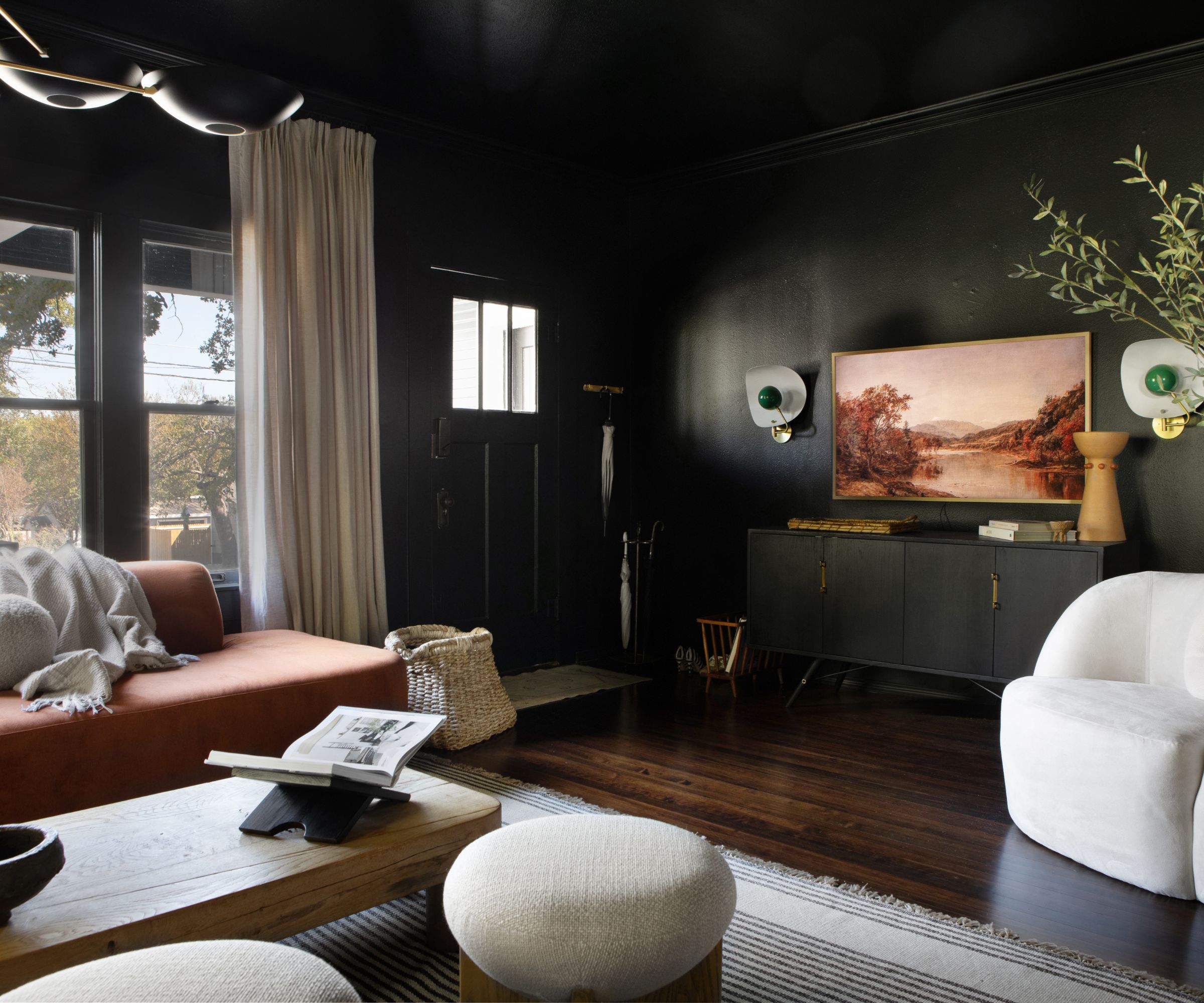
If your room has dark wall colors, this doesn't mean your furniture has to match. To ensure the room feels uplifted, opt to pair a dark scheme with lighter-colored furniture to add balance. 'To decorate with dark colors without making rooms feel dull, start by incorporating contrasting lighter shades with furniture,' advises designer Soledad Alzaga. 'This balance helps prevent the space from appearing too heavy or somber.'

San Francisco-based Interior designer Soledad Alzaga has worked on designs projects in San Francisco, Sonoma, Atherton, New York, Martha's Vineyard, Los Angeles, Mexico and Argentina.
When styled with balance in mind, dark color schemes can be a great way of creating rooms that feel cozy and sophisticated. When designing a room around these statement hues, consider these five tips for a cohesive end result.
Sign up to the Homes & Gardens newsletter
Design expertise in your inbox – from inspiring decorating ideas and beautiful celebrity homes to practical gardening advice and shopping round-ups.

Emily is a freelance interior design writer based in Scotland. Prior to going freelance in the spring of 2025, Emily was Homes & Gardens’ Paint & Color Editor, covering all things color across interiors and home decor for the Homes & Gardens website. Having gained specific expertise in this area, Emily is well-versed in writing about the latest color trends and is passionate about helping homeowners understand the importance of color psychology in home design. Her own interior design style reflects the simplicity of mid-century design and she loves sourcing vintage furniture finds for her tenement flat.
-
 How to fertilize magnolias – garden experts reveal the secrets to better blooming, and timing is critical
How to fertilize magnolias – garden experts reveal the secrets to better blooming, and timing is criticalMagnolias are famed for their spring flowers, and feeding at the right time can give trees a boost
By Thomas Rutter Published
-
 Sarah Jessica Parker's spring tablescape epitomizes lived-in luxury with art deco candle holders and a statement tablecloth – it's easy (and affordable) to recreate
Sarah Jessica Parker's spring tablescape epitomizes lived-in luxury with art deco candle holders and a statement tablecloth – it's easy (and affordable) to recreateKick off the season right with a warm table that invites guests into your home by emulating Sarah Jessica Parker's luxe and cozy scheme
By Sophie Edwards Published